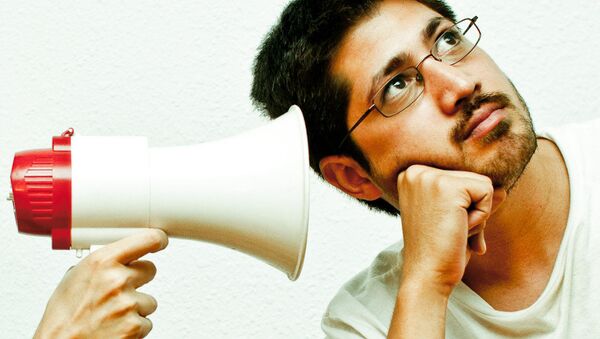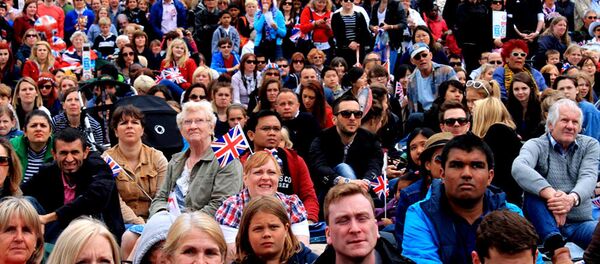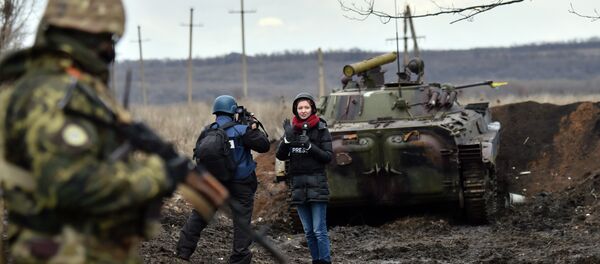In Spain, Prime Minister Mariano Rajoy's government has denied accusations of political interference in state television ahead of regional and parliamentary elections this year. Meanwhile in Britain, the Conservative party has stepped up its attack on what it perceives as a left-wing bias within state broadcaster, the BBC.
@campbellclaret @Ed_Miliband Bias in any media. Daily Mail Tories, Guardian and BBC lefties. No UK publication is balanced.
— Iain Montgomery (@nihaoxiongmao) April 29, 2015
Ahead of regional elections in Spain, opposition parties have accused Televisión Española (TVE) of favoring Rajoy's government in playing down criticism of him and dropping news stores critical of his Popular Party. Soon after the elections in April 2012, his government abolished a requirement that the broadcaster's president be approved by a two-thirds parliamentary majority.
Reading headlines at service station today I was shocked by print media bias towards #Tories @Conservatives against #Labour. #GE2015
— Sean McGrath (@sean_uk) April 28, 2015
"Since then cases of manipulation and censorship and complaints by news professionals have been constant, and it has gotten worse as the elections approach," socialist lawmaker German Rodriguez said in parliament.
"Public television is there to serve the people not to serve the electoral interests of the Popular Party."
Britain's Biased Communicator
In Britain, the Conservative Party has been stepping up its long-term battle with the BBC which many Tories believe to be institutionally left-wing biased.
The row continued after it was discovered that an election debate programme to be screened by the BBC on April 30 comprised an audience that was two thirds left-wing. The planned make-up of a debate involving Prime Minister David Cameron, Labour leader Ed Miliband and Liberal Democrat Nick Clegg will have an audience comprising 50 percent Labour and Liberal Democrat supporters and 25 percent Tory supporters.
The Daily Express reported the remaining audience members will either be undecided — 15 percent — or supporters of other parties, such as UKIP and the Green Party. "This means that a staggering two-thirds could vote for Labour, the Lib Dems or the Greens, despite the BBC's charter, binding the broadcaster to political impartiality."
Western Media Bias in Ukraine
Eliza Melkonyan on bias against Russia in the UK media http://t.co/1KiJGIQLsR
— Cherwell Comment (@CherwellComment) April 24, 2015
Many western media outlets have come in for bias over reporting the crisis in Ukraine. Hanno Gundert, managing director of N-Ost, the Network for Reporting on Eastern Europe says:
"All the reporting is dominated by black-and-white positions — one way or the other."
He said many reporters were unclear about the complexities of the Ukraine crisis, largely covering the news from convenient hotels in Kiev. He told Deutsche Welle few journalists left the Maidan to get a broader picture of the situation in the country. Indeed, many western media representatives stayed at the Hotel Ukraina right on the square. It became a kind of an "opposition press center."
France and the EU Treaty
In 2005, the French media as a whole were criticised as being biased in favour of the Treaty Establishing a Constitution for Europe during the campaign for the 29 May 2005 referendum. Sofiane Aboura wrote in the European Journal of Political Economy:
"The media bear a share of responsibility in the rejection of the Treaty in leading people who felt that the media were disconnected from the people's concerns to vote against the Treaty."




